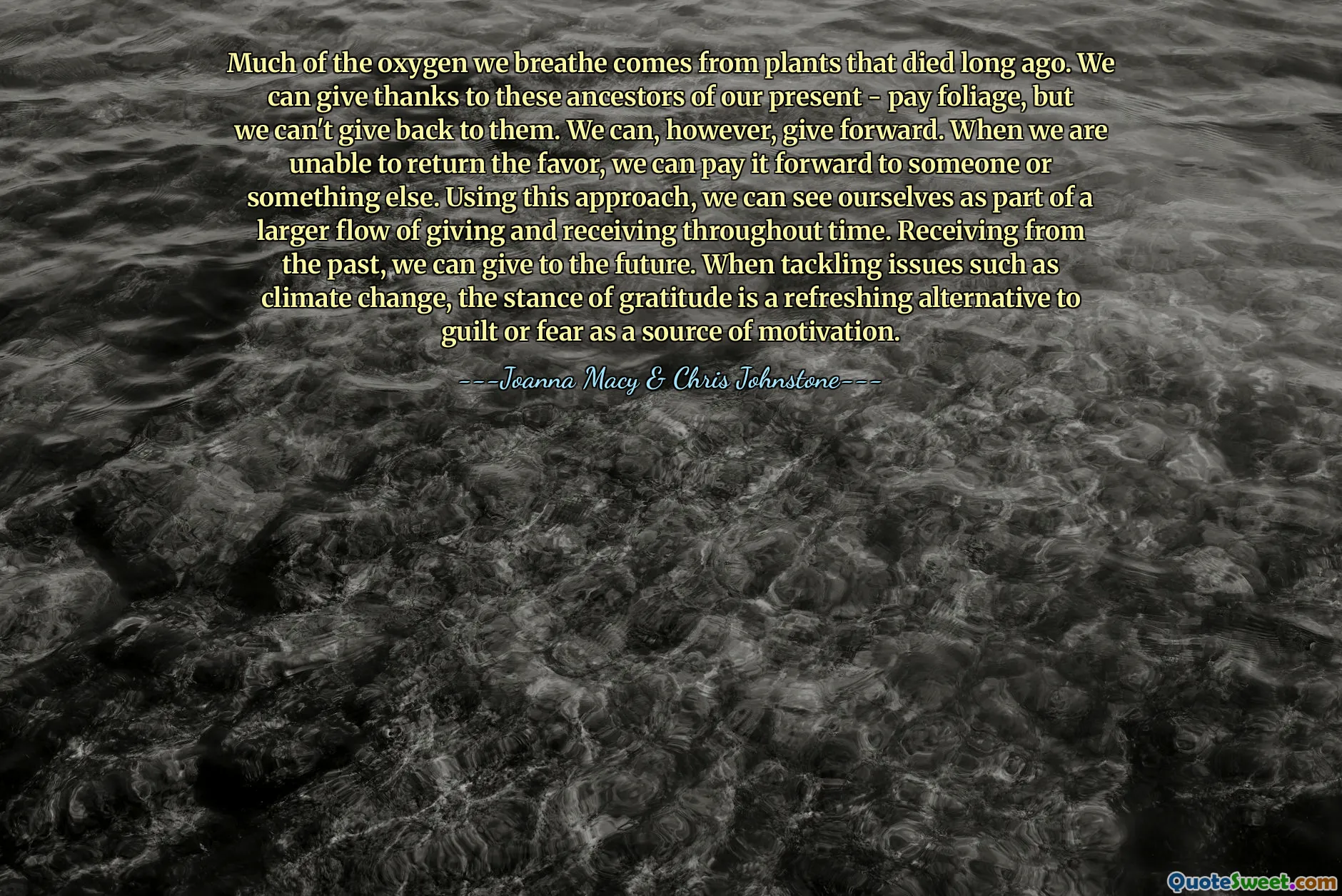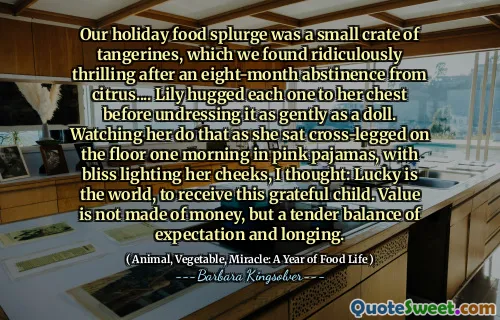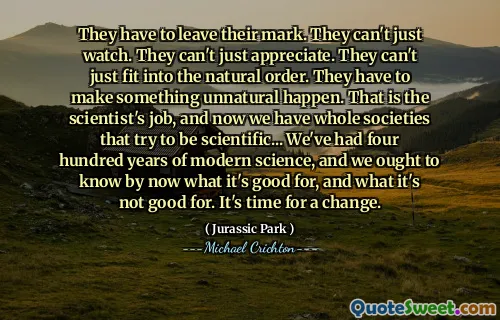
Much of the oxygen we breathe comes from plants that died long ago. We can give thanks to these ancestors of our present - pay foliage, but we can't give back to them. We can, however, give forward. When we are unable to return the favor, we can pay it forward to someone or something else. Using this approach, we can see ourselves as part of a larger flow of giving and receiving throughout time. Receiving from the past, we can give to the future. When tackling issues such as climate change, the stance of gratitude is a refreshing alternative to guilt or fear as a source of motivation.
This quote eloquently captures a profound insight into our relationship with the natural world and the temporal flow of generosity that transcends individual lifespans. The idea that much of the oxygen we breathe comes from plants long dead urges us to recognize the depth of connection we share with past ecologies — those plants acting as silent ancestors who sustain our very existence. There's an inherent humility in acknowledging that our present being owes so much to forms of life that have passed away, which challenges the modern mindset focused on immediacy and self-centered returns.
The concept of “paying it forward” brilliantly shifts the narrative from repayment to contribution. It suggests that while we can't repay the past directly, we have the power and responsibility to extend kindness, care, and regeneration to future generations and ecosystems. This flow of giving and receiving becomes a timeless loop, inviting us to see ourselves not as isolated individuals but as part of an ongoing exchange within the living world.
The final reflection on motivation in addressing climate change is especially salient. Instead of acting from guilt or fear, which can be paralyzing or divisive, gratitude as a motivator opens a space for positive engagement. It invites people toward hopeful action: appreciating the gifts we've inherited and feeling empowered to pass them on sustainably. This paradigm fosters resilience and community-focused stewardship — an orientation essential for meaningful environmental action. Joan and Chris’s perspective ultimately reminds us that embracing gratitude and forward-looking generosity may guide us toward a healthier relationship with the planet and with each other.







